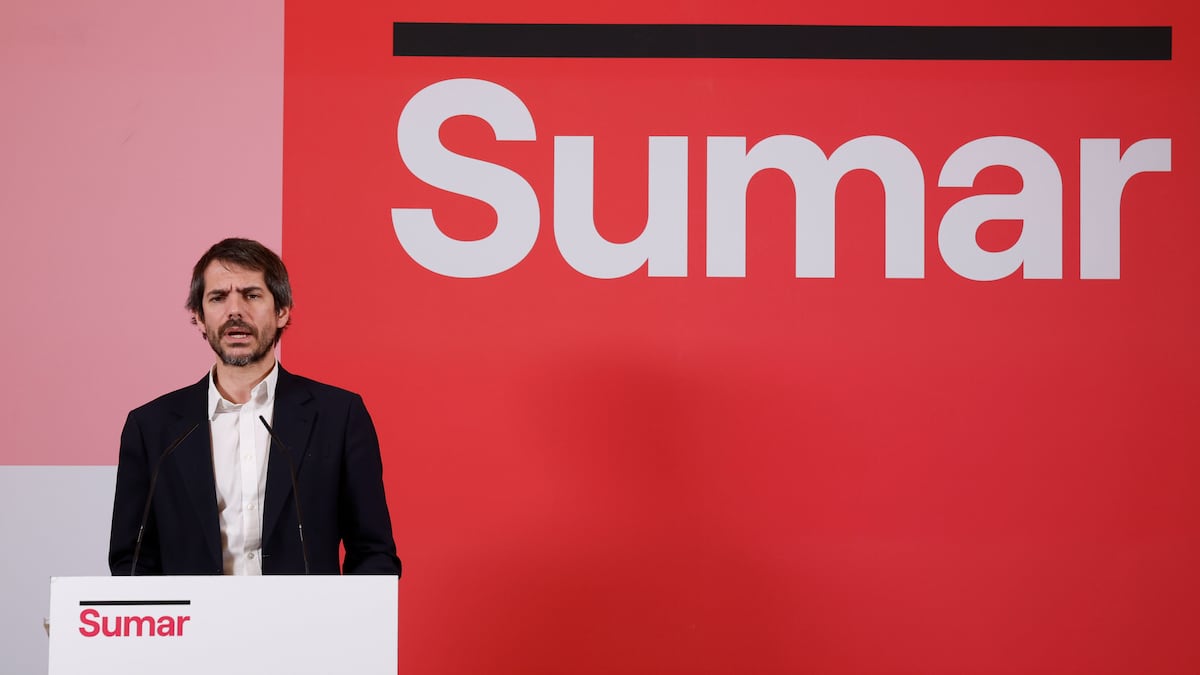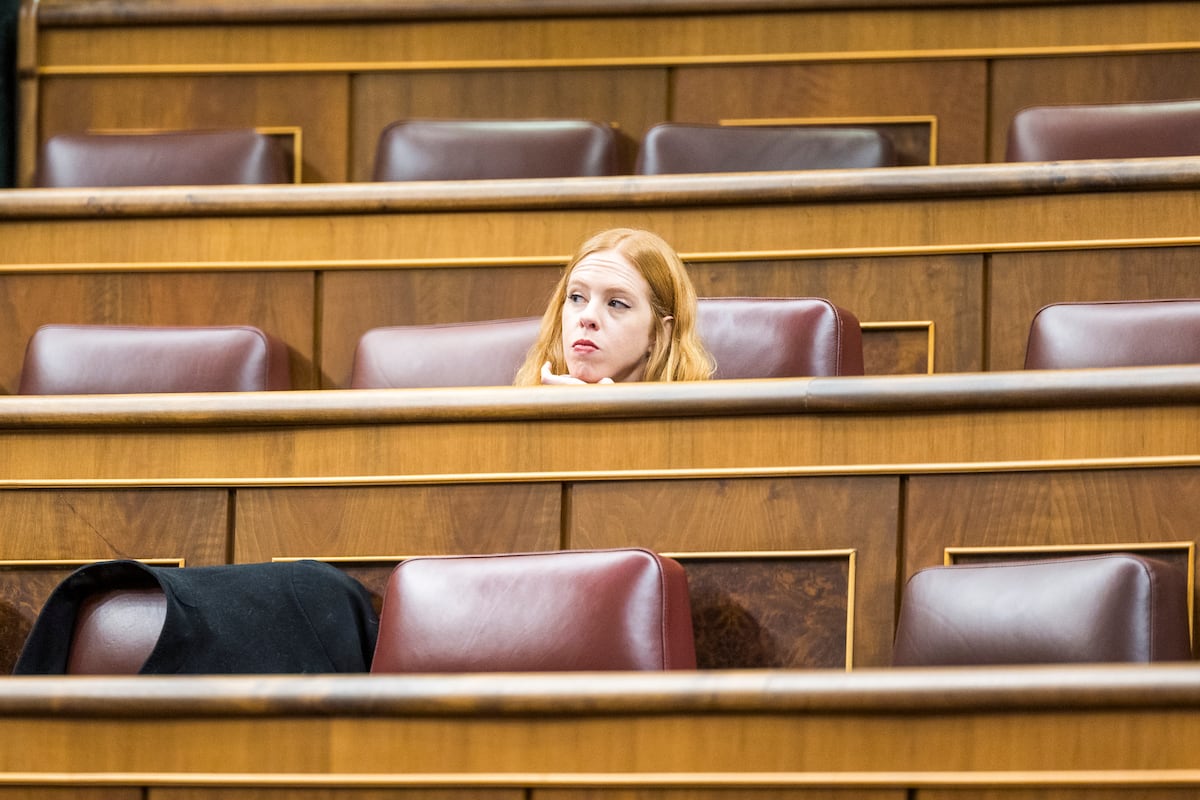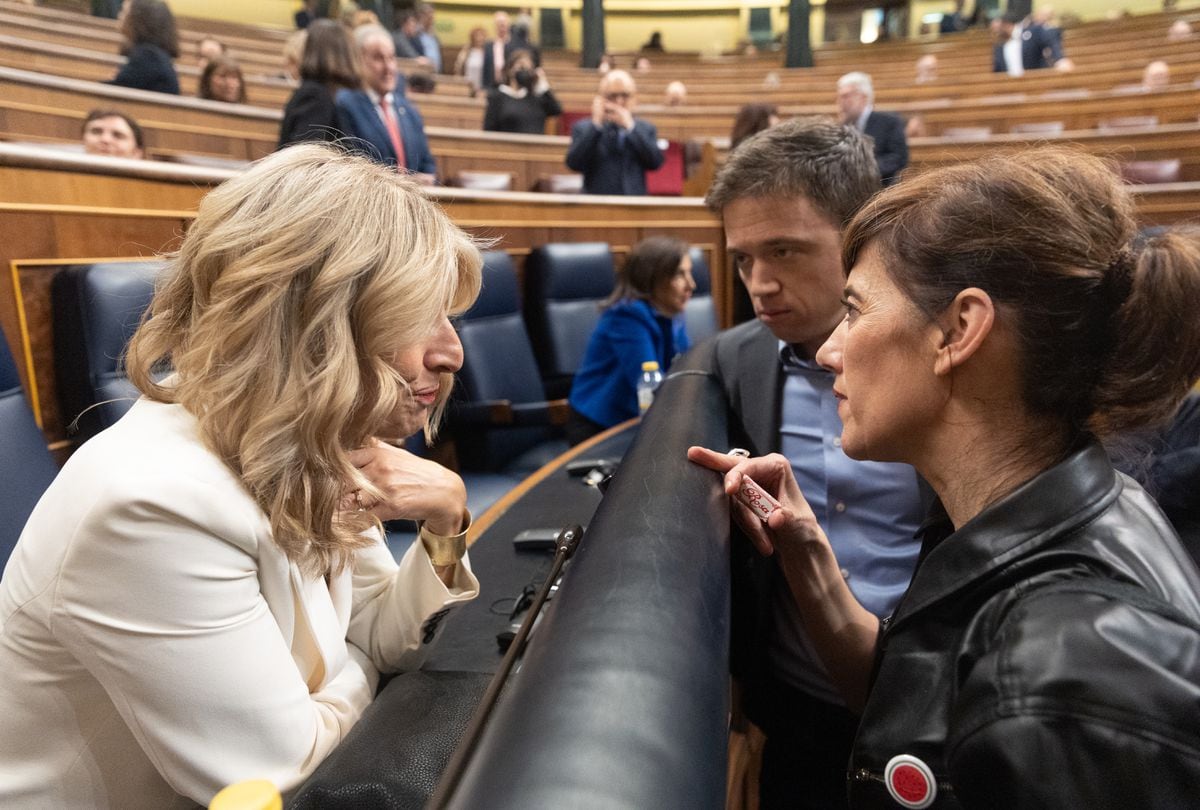The government's response to the conflict in Ukraine has made visible this week the cracks within United We Can.
The announcement by President Pedro Sánchez, on Wednesday in Congress, of sending weapons to the Ukrainian resistance outside the European mechanism, a particularly sensitive issue for the left, caused a cascade of reactions from the coalition's minority partner.
These criticisms show the tensions within the group for months, and raise doubts about the fit of Podemos in the future political project of Vice President Yolanda Díaz.
In a few weeks, the head of Labor will complete a year in office, a leadership that Pablo Iglesias abruptly transferred to her.
His style of exercising leadership, away from the angry forms of the party,
A few minutes after the president finished his speech, and when the opposition was just beginning to establish a position, the Minister of Social Rights and General Secretary of Podemos, Ione Belarra, visibly upset by Sánchez's turn, stood out: "Contribute to the war escalation is not going to resolve the conflict sooner”.
While Pablo Echenique, parliamentary spokesman for UP, described the shipment of weapons as a "mistake", Díaz closed ranks with the socialist sector of the Government: "The president has our full support, these are difficult decisions, we were all informed."
A discrepancy that worsened on Thursday, when Galician politics warned on television that the Government "speaks with a single voice, which the president makes explicit" and Belarra replied:
Coexistence has been tensing over the months.
Díaz has repeated many times that she did not want to be vice president, nor that she does not want to run as a candidate.
Doubts about this second commission remain, although the minister is determined to begin a tour of Spain between April and May to form a political platform that can attend the next general elections.
Díaz explained its purpose to Iglesias during a dinner before the summer and UP ended up assuming the main lines of a project that involves widening the space on the left.
However, until now, no formation knows what role it will have in it.
The vice president has been disassociating herself from the parties with a speech that has sometimes generated discomfort in Belarra's leadership, despite the fact that they continue to support her in public.
number two
of the formation, Irene Montero, on Friday in
20 Minutes
.
If in an interview in December, the vice president stressed that the parties were perceived as an "obstacle" by citizens, a few days later, the head of Equality claimed the "pride of militancy" before hers.
“Anyone who reads a little about the history of our country and the history of humanity realizes that we have not achieved any right alone.
All social conquests have always been a collective task”, she pointed out.
The vice president has never militated in Podemos —yes in the United Left and still has the PCE card— so her only link with the formation was Iglesias.
The friendship between the two since 2001 has been weakening these months in parallel to the relationship with Podemos.
The lawsuit announced against the president of Congress, Meritxell Batet, after last October she decided to withdraw the act of deputy to Alberto Rodríguez, convicted by the Supreme Court, represents a key moment in the estrangement between the two parties.
UP announced that it would take legal action against Meritxell Batet, and immediately Díaz, Minister Alberto Garzón —with whom he has recently strengthened ties after having had differences in the past— and the Comunes —one of his main supporters within the group— distanced themselves after a strong internal discussion.
In November, the vice president staged an act in Valencia of unity with other women leaders of the left: the mayor of Barcelona, Ada Colau;
the leader of Compromís, Mónica Oltra;
and the spokeswoman for Más Madrid in the regional Assembly, Mónica García, the party founded by Íñigo Errejón, with whom the relationship of the leaders of Podemos is still complex and whose contacts with Díaz generate misgivings.
Neither Belarra nor Montero participated in the act and the management took 48 hours to back it up.
In addition to the reluctance of the Minister of Labor to assume the leadership of United We Can —some sources criticize that she is barely involved in organic life— there is a way of doing politics that she does not share.
There are few times that the vice president raises her voice to publicly point out her differences with the PSOE, something that Podemos does.
She did not do it when there were difficulties in carrying out the housing law, and she threw balls out when UP proposed its own tax reform in February that was described by the head of the Treasury, María Jesús Montero, as "inopportune."
This same Saturday she asked in networks for a "great country agreement" to protect citizens and the business fabric in the face of the crisis caused by the conflict in Ukraine, which in her opinion happens because "those who have the most, the most must contribute ”,
just one day after Belarra demanded an "emergency" tax reform.
Díaz and the formation did cooperate when staging the conflict with the Ministry of Economy over who was going to lead the negotiations for the labor reform, a Labor competition, and for which the strategy was agreed with the head of Social Rights, who opened fire in social networks;
or also in supporting Alberto Garzón when Sánchez disavowed him in the controversy over his statements about the macro-farms.
who opened fire on social networks;
or also in supporting Alberto Garzón when Sánchez disavowed him in the controversy over his statements about the macro-farms.
who opened fire on social networks;
or also in supporting Alberto Garzón when Sánchez disavowed him in the controversy over his statements about the macro-farms.
The lukewarm support of Podemos to Díaz during the negotiations of the labor reform in Congress showed another distance.
The day after the ERC spokesman, Gabriel Rufián, stated that his group did not negotiate "personal projects", the Republican broadcast an interview with the Minister of Equality that highlighted the complicity between the two.
The morning of the debate and when Díaz had not finished his intervention, Belarra and Montero were absent from the plenary session to attend an act of the ministry.
That loneliness of Díaz the day in which one of the most important regulations of the legislature was approved was the same that United We Can must have felt when facing the campaign in Castilla y León, from which the vice president disassociated herself almost completely, with a single participation three days before the elections.
In those days, another discrepancy was staged in UP, when the Galician policy in favor of a "democratic cordon" was shown to Vox in Castilla y León, which the party had flatly rejected.
The war in Ukraine represents the latest chapter in the series of public disagreements.
Both Díaz and Podemos have minimized the differences, but neither the formation nor the environment of the vice president confirm that the ministers have spoken since Wednesday, nor did they reach the plenary session with a common position.
“Let's see if Belarra (who has never been a communist in her life, but seems more communist than the communist ministers) finds out that Ukraine has nothing to do with the control of gas resources that Russia and the US dispute. UU”, Iglesias ironized very hard with Díaz – with whom he no longer speaks – and Garzón this Thursday in the magazine
ctxt
.
However, Podemos had planned to address the crisis in Ukraine at a meeting of the State Citizen Council, its highest management body, next Friday.
On Wednesday, when the president finished his intervention, that debate was not settled and the UP caucus was divided.
Some stood up to applaud, such as Díaz herself, Garzón and parliamentarians Jaume Asens, Antón Gómez Reino, Txema Guijarro or Juan Antonio Delgado;
while Belarra and Montero did so sitting down and the leader of the PCE, Enrique Santiago, remained motionless.
Podemos has removed the specter of a government breakup, but it remains to be seen if this week's crisis represents a turning point in relations within the space.
As the months go by, the growth of Díaz, who is positioned as the best valued political leader, runs the risk of reaching a ceiling.
Belarra's party is aware that she is today its best asset to stop the electoral decline of recent years, and the vice president needs the formations to sustain a future project.
But for that he must decide to take the step, and the Minister of Labor already warned him months ago.
“If there is noise, it is likely that I will leave.”
A difficult debate on the left
United We Can has faced divided President Sánchez's turn on the shipment of weapons to Ukraine.
These are the positions defended by each of the formations that make up the space:
Can.
The party rejects the delivery of weapons bilaterally, which it considers "ineffective" to alter the correlation of forces, it is committed to diplomacy, dialogue and the de-escalation of the conflict in line with the United Nations resolution.
United Left.
Despite the fact that Minister Garzón has aligned himself with Díaz in supporting Sánchez, the spokeswoman for the federal leadership, Sira Rego, pointed out on Thursday that "the shipment of weapons is not part of the solution, but of the problem." In Izquierda Unida we have always been against war and we are committed to de-escalation, diplomatic channels and peace, even more so in the face of a possible nuclear conflict, "he added. IU supported a march against NATO last week, and in a statement issued just a few hours after the Russian attack called for its "dissolution”, in addition to questioning the effects of economic sanctions. In the same vein, the general secretary of the PCE, Enrique Santiago, expressed himself on Friday, for whom sending weapons "is useless and it can make an urgent diplomatic exit difficult.”
In Comú Podem.
Its spokesman in Congress, Jaume Asens, clarifies that the group's position is not "categorical", but "a yes with many doubts" on an issue on which there is internal debate.
The formation has pointed out these days that it is "legitimate" for Ukraine to defend itself and for the international community to come to its aid, although it recognizes the controversy regarding the usefulness or not of sending weapons.
The formation does not reject economic sanctions, although it does reject media censorship, just like Podemos.
Green Alliance.
The environmentalist party believes that sending weapons to Ukraine "is not effective" in solving the problem.
As greens, they believe it is urgent to urge the international prohibition of any type of weapons and point out that breaking with the dependence on Russian gas and uranium must be a priority objective "among other things to stop financing the Putin regime," sources report. the direction.
They ask to "accelerate and deepen" the energy transition towards a model based 100% on renewable energies.
Exclusive content for subscribers
read without limits
subscribe
I'm already a subscriber






/cloudfront-eu-central-1.images.arcpublishing.com/prisa/ELMYHMQGQRGUFIVHUGPJRDZMAU.jpg)


